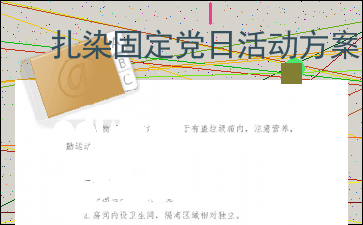虚拟语气
以下为《虚拟语气》的无排版文字预览,完整格式请下载
下载前请仔细阅读文字预览以及下方图片预览。图片预览是什么样的,下载的文档就是什么样的。
虚拟语气
语气的分类: 陈述语气,祈使语气,虚拟语气
陈述语气:用来陈述一个事实,或提出一种看法,有肯定,否定,疑问或感叹等形式。
祈使语气:用来表示请求,邀请,命令,警告或劝告等。
虚拟语气:表示说话人所说的话不是事实,而是一种假设,愿望,怀疑或推测。虚拟语气主要用于if条件状语从句,也可用于主语从句,表语从句,宾语从句等.
一、虚拟语气在if条件句中的用法
1.
例句:
1. If I were a bird, I could fly in the sky.
2. If you had studied harder, you would have passed the exam.
3. If it rained tomorrow, I would stay at home.
If it should rain tomorrow, I would stay at home.
If it were to rain tomorrow, I would stay at home.
2. 倒装虚拟语气
当从句谓语动词中有should, were, had时,可将if省略,而将should, were, had放在句首,形成倒装语气.
If it should rain tomorrow, I would stay at home.
→Should it rain tomorrow, I would stay at home.
If it were to rain tomorrow, I would stay at home.
→Were it rain tomorrow, I would stay at home.
If you had studied harder, you would have passed the exam.
→Had you studied harder, you would have passed the exam.
但省略连词if后的倒装形式的句首不能用动词的否定缩略形式:
Weren’t I to do (XXXXX)
Were I not to do (√)
3. 含蓄(隐含)虚拟语气
有时假设的条件不是通过条件从句表达出来,而是隐含在某些短语中,如without, but for等,或通过某种预警体现,从而构成含蓄(隐含)虚拟语气.
例句
Without air,(=If there were no air) there would be no living things.
But for your help,(=If you had not helped me) I couldn’t have finished the work in time.
We didn’t know it’s so far from here, otherwise we would have called a taxi.
=If we had known it’s so far from here, we would have called a taxi.
4.混合虚拟语气
主句和从句所指的时间不一致,则主从句的谓语根据实际时间概念来确定,形成虚拟语气.
例句
1.If you had told me the news yesterday, I wouldn’t be so worried now.
2.If I were you, I wouldn’t have missed the bus last Sunday.
二、名词性从句中的虚拟语气
宾语从句中的虚拟语气
表示”命令,要求,劝告”的词的宾语从句的谓语用should+动词原形,should可省略.
一坚持: insist
二命令: order, command
三建议: advise, suggest, propose
四要求: request, require, demand, desire
prefer, determine
其中当suggest当”表明,暗示”讲时, insist当”坚持说”语义时,其引导的宾语从句不用虚拟语气,该用什么时态用什么时态.
例句
The smile on her face suggests that she agrees with me.
The boy insisted that he hadn’t broken the window.
2. 同位语从句或表语从句中的虚拟语气
由1.中所提到的动词转化的名词
insistence, order, command, advice, suggestion, proposal,
request, requirement, demand, desire, determination,
preference等词后接同位语从句或表语从句时,从句一般
用虚拟语气should +动词原形, should可省略.
3.主语从句中的虚拟语气
由1.中相关动词被动语态作谓语, it作形式主语,that从句作真正主语, 且that从句用should+动词原形,should可省略的虚拟语气.
It is suggested that 主+(should) do
以suggest为例看名词性从句中的虚拟语气:
We suggest that you (should) go there by bus.(宾从)
Our suggestion is that you (should) go there by bus.(表从)
It is our suggestion that you (should) go there by bus.(同位从)
It is suggested that you (should) go there by bus.(主从)
另外,主语从句虚拟语气还适用于”It is/was +形容词+ that”句型, 从句中谓语用(should)+动词原形.这类形容词有表示”必要性,重要性,强制性,义务性”的important, necessary, natural, possible, eager, proper, advisable, desirable等,及表示”不可思议,不可想象,令人吃惊”的strange, surprising, unthinkable, incredible, amazing等,这类从句中should一般不省略.
主语从句虚拟语气还有”It is/was + a rule/a shame/an honor/ a surprise/no wonder that”, 主语从句中谓语用(should)+动词原形.
例句
It is very important that one (should) master the skills of computer.
It is a rule that everyone (should) obey the laws.
三、wish, would rather 和 as if/as though从句中的虚拟语气.
wish后宾从中的虚拟语气
(1)表示现在不能实现的愿望,从句用一般过去式
I wish I had a car.
(2)表示过去不能实现的愿望,从句用过去完成式
My father wishes that he had gone to university.
(3)表示将来不能实现的愿望,从句用would/could/might+动词原形
I wish he would come tomorrow.
2. would rather 后宾从中的虚拟语气
谓语常用一般过去式表示与现在或将来事实相反,用过去完成式表示与过去事实相反.
I would rather we had a rest now.
I’d rather you hadn’t told me the truth.
3. as if/ as though 引导的表从或方式状从中的虚拟语气
(1)表示与现在事实相反, 从句用一般过去式
He treats his sister as if /as though she were a stranger.
(2)表示与过去事实相反,从句用过去完成(had done)
You look as though you’d seen a ghost.
(3)表示将来的可能性不大,从句用would/could/might+动词原形
They talked and talked as if they would never meet again.
四、”情态动词+have done”用法
1.(1) ought to/should have done 过去该做而事实上没有做, 用于一人称表后悔或遗憾,用于二三人称表批评,指责.
I should have taken your advice, but it’s too late now.
You failed in the examination, you should have worked hard.
(2) should have done竟然做了某事.
Marx who had developed communism should have lived and died in London.
2. ought not to/should not have done 表过去不应该做的事而实际上却做了.
She ought not to have argued with her mother.
3. need not have done 不必要做的事却做了
He needn’t have left for the airport so early.
4. could have done
(1)本来能够做某事而事实上没做
He could have won the big prize, but he gave up the chance.
(2)表示对过去情况的一种可能的推测
He could have won the big prize, for he looks very happy.
5. might have done
表也许应该做某事,用于虚拟,表轻微责备
He might have gone there earlier, or he wouldn’t have missed the first train.
(2) 表对过去某种可能性的不确定的推测
He might have gone there very early, or he wouldn’t catch the first train.
6.must have done 一定做了某事, 对过去发生的事的肯定推测.
It must have rained last night, for the ground is wet.
五、其它情况的虚拟语气
If only XXXXX 要是XXXXX就好了
表示现在情况,用一般过去式
If only I knew his name.(现在)
(2) 表示过去情况,用过去完成式
If only I had followed your advice.(过去)
(3) 表将来情况用would/could/might+动词原形
If only I could see him again.
2. It is (right/high) time that +主+一般过去式/should+动词原形
该是XXXXX的时候了(It’s time for sb. to do sth.)
It’s time that we went to school.
It’s time that we should go to school.
[全文已结束,注意以上仅为全文的文字预览,不包含图片和表格以及排版]
以上为《虚拟语气》的无排版文字预览,完整格式请下载
下载前请仔细阅读上面文字预览以及下方图片预览。图片预览是什么样的,下载的文档就是什么样的。
图片预览





















热门关注
- Unit5Firstaid
- it的用法
- coutch potatoes
- 高三英语公开课-定语从句复习教学课件(备份)
- 张莉课件
- 张莉课件
- Unit3What-are-you-doing-for-vacation教案
- 教学纪实文本
- 高中英语语法 主语从句原创
- 高中定语从句课件
- 高中英语《强调句型》课件
- 人教版九年级英语Unit9 sectionA教学设计:
- 定语从句(book1 unit5 period3)教学设计---蒲某某
- Module5 Museums Unit 2 教学设计 - 修改
- Module5 Museums Unit 2 教学设计 - 修改
- Module5 Museums Unit 2 教学设计 - 初稿
- 必修三unit5-Canada-the-true-north
- 定语从句
- 虚拟语气
- 虚拟语气
相关下载
- Unit5Firstaid
- it的用法
- coutch potatoes
- 高三英语公开课-定语从句复习教学课件(备份)
- 张莉课件
- 张莉课件
- Unit3What-are-you-doing-for-vacation教案
- 教学纪实文本
- 高中英语语法 主语从句原创
- 高中定语从句课件
- 高中英语《强调句型》课件
- 人教版九年级英语Unit9 sectionA教学设计:
- 定语从句(book1 unit5 period3)教学设计---蒲某某
- Module5 Museums Unit 2 教学设计 - 修改
- Module5 Museums Unit 2 教学设计 - 修改
- Module5 Museums Unit 2 教学设计 - 初稿
- 必修三unit5-Canada-the-true-north
- 定语从句
- 虚拟语气
- 虚拟语气
